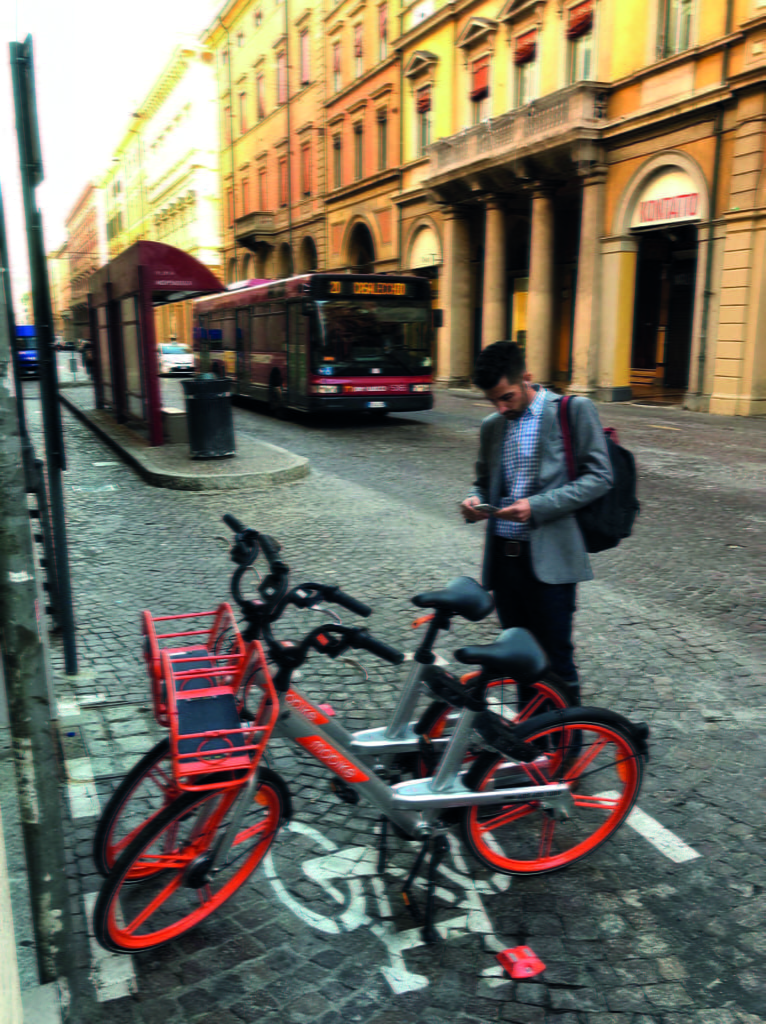NMS operators step up to support cities on COVID-19
Cities and regions are facing major challenges from the spread of the COVID-19 virus, not just in health, economy and society, but also in transport. In recent weeks urban mobility has in many cases changed beyond all recognition, with normal patterns of travelling and commuting massively disrupted. Not only have billions of people reduced their overall travel, but many are also changing how they travel too, finding new solutions to avoid close contact with others.
In recent years, New Mobility Services (NMS) have seen a dramatic rise in cities across the world and now play a key role in many urban transport systems. Ride-sharing, micro-mobility and other bike-sharing NMS models are now commonplace in many cities and are a daily norm for many millions of people across the world.
But how are NMS operators responding to the COVID-19 crisis? With normal patterns of mobility disrupted in cities across the world, and a growing need for support for key workers, many NMS operators are stepping up to provide support to keep cities moving in these challenging times. Here, we take a look at a few solutions being implemented by NMW operators.
Uber
Uber has announced plans to support cities and authorities in tackling specific needs during the COVID-19 pandemic. Uber is supporting affected driver and courier partners by compensating their lost earnings or time off the road for up to 14 days (more here). For Uber Rides, measures range from introduction of phone ordering for elderly customers without smartphones to suspended pooled rides or provision of cleaning sprays, though supplies are limited, to driver partners. JUMP, Uber's electric bike share service, has remained open for some cities looking to provide an alternative to reduced public transport. In Rome, London and Berlin and Spain, Uber is supporting authorities in providing free rides to healthcare workers or discounted rides to vulnerable groups. For Uber Freight, efforts are being made to help small shippers manage the increased costs during this critical time, for example by waiving fees for emergency relief loads or providing cleaning sprays to small carriers if available.
Voi
Micro-mobility company Voi has announced measures to assist workers still travelling to work in the Nordic Region throughout the COVID-19 outbreak. Voi recently announced it was partnering with restaurants in the Nordic countries to support businesses who have been struggling with recent spikes in demand for home deliveries, partnering with Gigstr. This has led to successful partnerships with restaurants in Stockholm and Oslo. Now Voi look set to go one step further by offering support for people in Nordic cities working in healthcare, pharmacies, emergency services as well as restaurants.
Bird
North American micro-mobility operator Bird has announced plans to provide health workers with free use of their services. The project will initially be available in Tel Aviv (IL), Antwerp (BE), Santa Monica (US) and Culver City (US), but Bird is also looking for other ways that its micro-mobility services can support the medical community. In Turin, Bird has loaned a small fleet of electric scooters to the local Red Cross organisation to help with deliveries of food and medicine to elderly residents and COVID-19 patients.
Grüv
Micro-mobility operator Grüv has also revealed plans to assist people during the COVID-19 outbreak. The company is offering free use of its e-scooters for all health workers and supermarket employees for duration of the outbreak. As well as this, the company is offering $10 of free credit for all new and existing users to help them get around during this period.
Bolt
Bolt has taken several steps to protect customers. An innovative measure was recently launched in Bolt's French operations, with the 'Bolt Protect' service now in operation to provide safer and easier travel for customers. Bolt Protect will give people the option in the app to access vehicles which have physical protection measures installed between the front and rear seats of the vehicle. As well as this, Bolt is carrying out daily disinfection of e-scooters, paying special attention to the most touched areas (e.g. handlebars). Bolt is however advising all scooter users to carry their own disinfectant spray or wipes and use them before and after the ride, and, if possible, wear gloves while riding. Bolt is also now engaging with hospitals to provide free scooter use for health workers in several countries to help people get where they need to be safely.
Nextbike
Bike-sharing services are also stepping up to support keep cities moving during the COVID-19 outbreak. In Berlin, the state-sponsored Nextbike bike-sharing service is offering free rides of up to 30 minutes until 19 April (the end of Easter holidays) to compensate for reduced availability of public transport and allow people to travel actively in the city. This has been complemented by expanding safe bike lanes throughout the city to make cycling safer and easier for everyone. In Glasgow, free Nextbike memberships and e-bike rides are being given to National Health Service (NHS) workers and other essential workers in the Scottish city to help them get to and from work safely during the Covid-19 outbreak. The scheme has been made possible thanks to a joint funding partnership between Glasgow City Council, ScottishPower and nextbike. Up to one thousand free memberships a month will be made available over the next three months.
Donkey Republic
With many cities and towns looking to cycling to support efforts to tackle COVID-19, Donkey Republic are providing support to launch their services in new locations. Donkey Republic are offering to set up their operations in new towns and cities within 1 month if local authorities have an interest in doing so. This could assist cities in boosting the provision of safe and easy travel for people during a time of reduced public transport availability. Please see here for further information.
For more information on NMS, COVID-19 and urban mobility more generally, please see our Keeping Things Moving page and our 'useful resources on COVID-19 and urban mobility' page.


